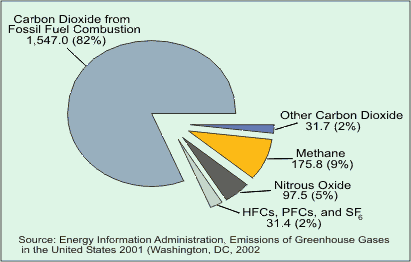Taxes would be levied on carbon use. Energies such as coal or gasoline would have a much higher rate than solar or wind power. These clean sources of power would likely not be taxed at all. Firms have a strong incentive to adopt whatever new technology is necessary to reduce their carbon footprint.
The draw of a carbon tax over Cap and Trade is its simplicity. Cap and Trade involves the buying and selling of carbon credits with other companies. The Carbon Tax simply levels a tax on carbon use on all companies. This would also mean a carbon tax could be implemented much more quickly than a cap and trade system. From a government's perspective, the carbon tax could be more beneficial, as it supplies additional revenue to their coffers.
However, this could also mean higher energy prices for consumers. The government might have more money, but one way to get around tax for energy companies would be to simply raise rates. This could be a very negative effect of trying to fix a very important problem.
One way to solve this problem is to change the way the money is allocated once it is collected from the polluters. Since households would be paying more, it makes sense to alleviate them of a burden that was supposed to be placed on major polluters.
To do this, the government would use the money collected to pay out benefits or provide tax breaks to households that would bear a burden from paying the higher rates. This makes the whole system revenue neutral. This would be preferable over simply levying a tax. This way, consumers can actually make a profit by implementing their own energy saving measures, instead of just holding steady or paying their original bill.
Whether it's the Carbon Tax or Cap and Trade, Congress must act soon on establishing some method of reducing our fossil fuel consumption. Profit is a huge incentive for businesses, and anything that cuts into that profit is an unwelcome burden on businesses. We need to use financial incentives for our advantage when it comes to energy policy. Both Cap And Trade and the Carbon Tax do this: they make it worth a business's while to invest in ways to reduce consumption and increase efficiency. If we do this, we can make sure that our commercial and industrial sector of the economy is clean and efficient, paving the way for energy independence.


